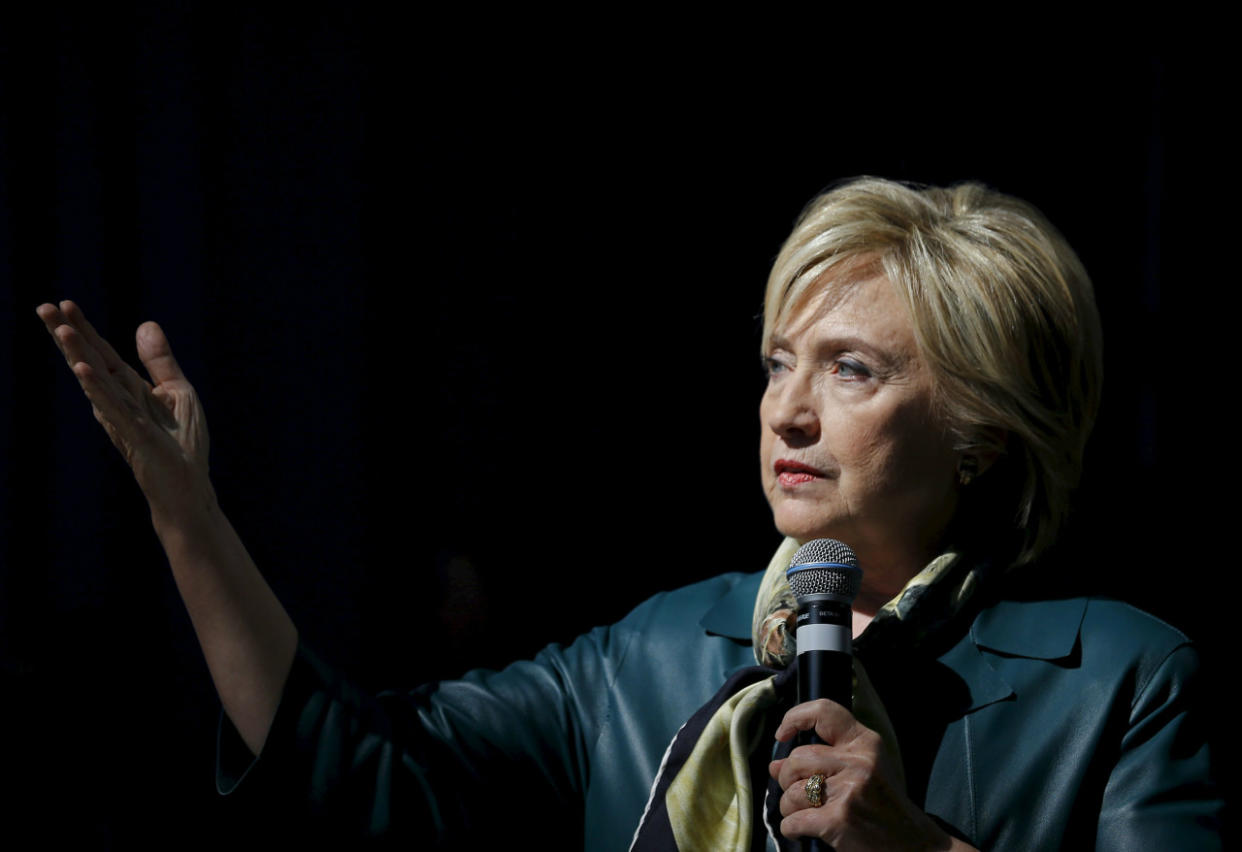Hillary Clinton doesn’t support revival of Glass-Steagall Act

Clinton speaks at a campaign event in Davenport, Iowa, on Tuesday. (Photo: Jim Young/Reuters)
Hillary Clinton says she doesn’t support reinstating a Depression-era banking law that separated commercial and investment banks because her forthcoming proposal for U.S. financial reform is “more comprehensive.”
• What is it? The Glass-Steagall Act, passed in 1933, prohibited commercial banks from participating in the investment banking business and created the Federal Deposit Insurance Corporation (FDIC) to protect bank deposits from institutional failure. But major provisions of the law were repealed in 1999 under President Bill Clinton, a move some believe contributed to the 2008 global credit crisis because commercial banks — now free to invest in things such as real estate — were saddled with billions of dollars in losses tied to cratering U.S. home prices. Several lawmakers on both sides of the aisle have called for the reinstatement of the law to make banks “too big to fail” much smaller, minimize risk and prevent such a crisis from happening again.
• Who supports it? Vermont Sen. Bernie Sanders and former Maryland Gov. Martin O’Malley — two of Clinton’s challengers for the Democratic presidential nomination — as well as Massachusetts Sen. Elizabeth Warren, who along with Arizona Sen. John McCain, reintroduced legislation to revive Glass-Steagall this year.
“Despite the progress we’ve made since 2008, the biggest banks continue to threaten our economy,” Warren said in a statement introducing the legislation. “The biggest banks are collectively much larger than they were before the crisis, and they continue to engage in dangerous practices that could once again crash our economy.”
Both Sanders and O’Malley have hit Clinton for her close ties to Wall Street.
“Her closeness with big banks on Wall Street is sincere,” O’Malley said in July. “It’s heartfelt, long established and well known.”

Bernie Sanders speaks at a campaign kickoff rally on the shores of Lake Champlain in Burlington, Vt., in May. (Photo: Brian Snyder/Reuters)
Sanders has made taking on the big banks a pillar of his presidential bid.
“It is time to break up the largest financial institutions in the country,” Sanders said at his campaign launch in May. “Wall Street cannot continue to be an island unto itself, gambling trillions in risky financial instruments while expecting the public to bail it out. If a bank is too big to fail, it is too big to exist. We need a banking system which is part of the job-creating productive economy, not a handful of huge banks on Wall Street which engage in reckless and illegal activities.”
• Why doesn’t Hillary? “The big banks are not the only thing we have to worry about,” Clinton said in Iowa Tuesday. “I’ve studied this real closely, and what I am proposing is we go after the risk, and if they are too big to manage, that is a risk and they should not continue. If they are so big that they are causing disruptions on the marketplace, that’s a risk.”
Clinton continued, “If you only reinstate Glass-Steagall, you don’t go after all these other institutions in what is called the shadow banking system — hedge funds and other financial entities that have too much power in our economy. I have what I consider to be a more comprehensive approach to what we need to do to rein in these institutions, including the big banks.”
The Democratic frontrunner also took a swipe at her rivals, like O’Malley, who are seeking to tie her to her husband’s repeal of Glass-Steagall.
“I’m going to go after what I think are the real problems, not the problems on the past,” Clinton said, “because what I’m interested in is stopping something like this from happening again.”



